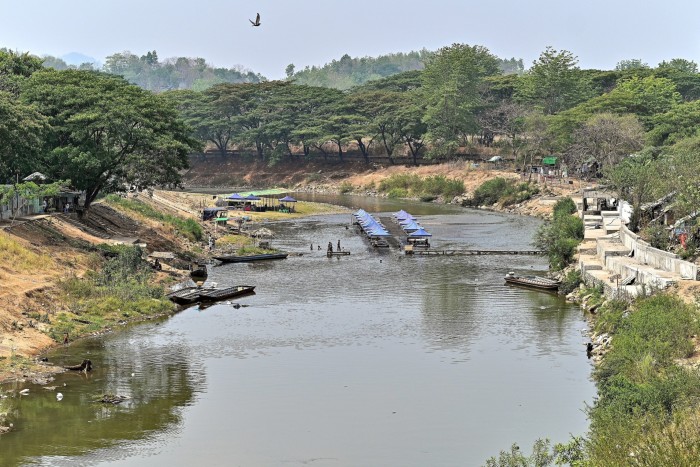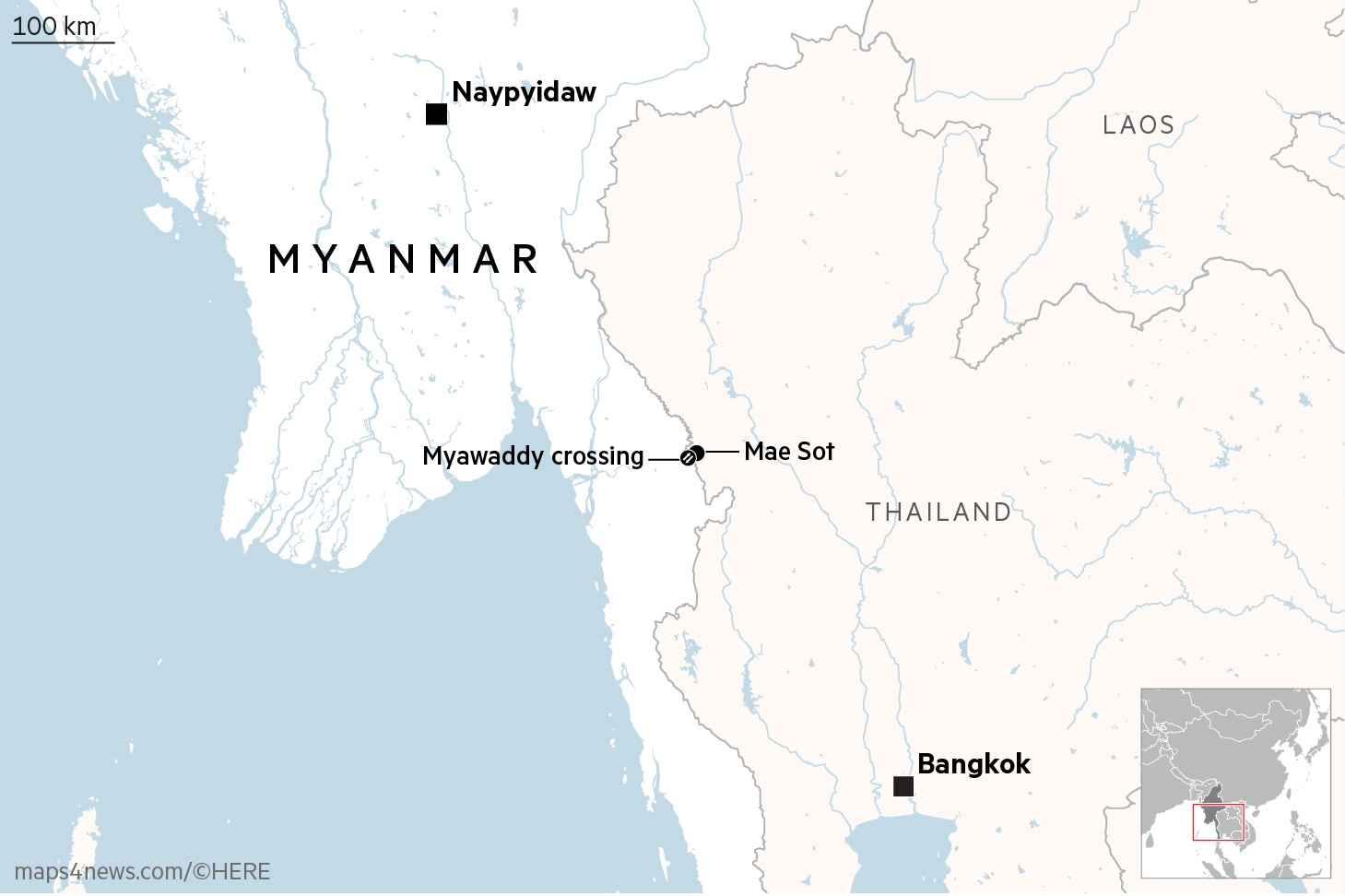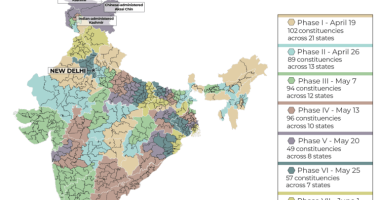The fall of one of Myanmar’s busiest border trading towns to rebel forces in recent days has put further pressure on the military regime as it grapples with a relentless insurgency across the country.
Hundreds of soldiers in Myawaddy, a town on Myanmar’s south-eastern border known as a trading hub for food, gems and other goods, had surrendered, while many others attempted to flee to neighbouring Thailand after several days of assault by rebel forces.
Three years after a military coup, Myanmar’s junta is facing its most serious threat from insurgents as it has lost control of strategic frontier regions near India, China, Bangladesh and now Thailand.
While the junta faces no imminent risk of being overthrown, the loss of critical territories and a severe hit to troop morale is testing general Min Aung Hlaing’s grip on power and could prompt a shift in the way Myanmar’s neighbours approach a weaker regime.
“We’re now at a point where the military is suffering such a humiliating series of defeats, and the pressure on Min Aung Hlaing has become so acute that all bets are off,” said Richard Horsey, a senior adviser on Myanmar to the International Crisis Group, a think-tank.

This is the first time the junta has lost control of Myawaddy, on a main route connecting central Myanmar with Thailand.
The losses have piled up in recent months for the junta, which took power in 2021 after unseating a democratically elected government led by Nobel laureate Aung San Suu Kyi, who is now under house arrest. The deeply unpopular coup sparked countrywide protests and a civil disobedience movement. Thousands of civilians have been killed as the junta reacted with deadly force, with the UN accusing the military regime of war crimes.
A pivotal moment came last October when a group of insurgents, called the Three Brotherhood Alliance, staged an offensive close to the China border, with their success encouraging other rebels to attack strategic towns and putting the junta on the back foot. The disparate organisations represent Myanmar’s various ethnic minority groups.
The National Unity Government, a shadow government comprised of lawmakers from the ousted Aung San Suu Kyi administration and other groups, has thrown its support behind the insurgents. Its armed wing, the People’s Defence Force, is also working with some of the insurgents, including those who attacked Myawaddy this month.
“Myawaddy is just one example of how the junta’s forces are weakening,” NUG spokesperson Kyaw Zaw told the Financial Times. Soldiers in the town put up little resistance, he said, a sign of weak morale.
Opposition forces have become increasingly daring in their attacks. This month, the NUG co-ordinated drone strikes against the junta’s military headquarters and an air base in Naypyidaw — the regime’s centre of power.
“We will continue attacking the junta’s forces and their military bases at the right time until we remove the military dictators from power,” Kyaw Zaw said.

The military has reacted to the losses by attacking the fallen regions with indiscriminate air strikes and shelling. The UN has said the junta’s attacks on civilian areas have jumped fivefold in the past five months.
Thousands of soldiers have defected, or have been killed or wounded. In February, the junta made it mandatory for young men and women to serve in the military for up to two years, prompting many to flee the country.
Thai Prime Minister Srettha Thavisin told Reuters this week that it was a good time to engage with the military leadership given its weakened position.
With armed rebel forces controlling the strategic border areas, observers say Myanmar’s neighbours will need to have a buffer policy from any fallout. Regional governments have not officially recognised the junta, and they fear a battle between the regime and insurgents could spill across borders. “Increasingly, the assessment of the neighbours is that they [the junta] are not looking so durable now,” Horsey said.
Jason Tower, Myanmar country director at the United States Institute of Peace, said China’s role was key.
Beijing brokered a truce between the junta and rebel forces in January in the Shan state. It is concerned about organised crime and particularly syndicate-run scam operations in Myanmar, as well as a potential hit to lucrative trade with Naypyidaw.
“The lack of other states getting their hands dirty and supporting solutions on the ground gives China the space to focus its interventions on enhancing its interests rather than working toward long-term peace,” Tower said.
The junta now primarily controls central Myanmar, including the main cities of Naypyidaw, Yangon and Mandalay.
It will be a lot harder for the rebel forces to gain ground in the central region, said Horsey. The armed group fighting in the centre of the country is much less experienced than others that have been fighting the military for decades. “They are not as heavily armed and they don’t have the same command to go to scale,” Horsey said.
Regardless, the pressure on the regime across the country remains. Terence Lee, a visiting associate professor at the S Rajaratnam School of International Studies, said senior officials were increasingly disgruntled, opening up the possibility of leadership change in the military.
“The more disillusioned they become, the more likely they are willing to move against Min Aung Hlaing. He promised a bed of roses but that didn’t turn out to be the case as the country now is in civil war and many do not accept the legitimacy of the Tatmadaw [military regime],” Lee said.
Read More: World News | Entertainment News | Celeb News
FT









